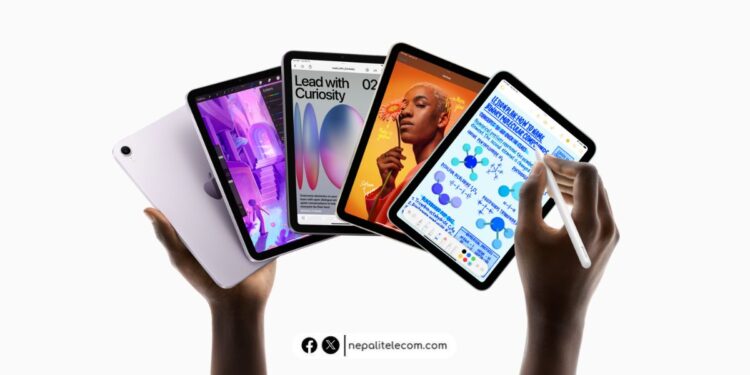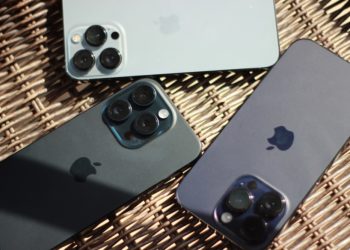Most of us know that internet connectivity, while filled with opportunities and experiences, comes with some risks. If you’re an iPad user browsing the web, then you are by no means immune to them.
Whether you stick to your home WiFi or switch between public networks, your iPad is exposed – regardless of the activity.
Fortunately, you can protect yourself against the potential threats that checking your emails at a local cafe presents with a VPN, or Virtual Private Network.
Many users are already doing so, or streaming videos online – that’s where a VPN comes in. But why should you install one on your iPad? 52% of VPN users have one installed on an iOS device already.
Let’s find out why!
Understanding VPNs: How Do They Work?
There are over one and a half billion worldwide VPN users – but what is a VPN, and how does it work?
VPN, or Virtual Private Network, is a tool that hides your online activity, location, and identity, by encrypting your connection. Your data and activity is rerouted through the provider’s secure servers which helps it stay private.
How VPN Encryption Works
A VPN uses encryption to scramble and code the data being transmitted via its servers from your device and back. This means it is undecipherable if anyone intercepts it.
They use symmetric or asymmetric encryption. One uses a single shared key and the other has both public and private keys. With the latter, both keys must be in possession to decrypt the data.
How Location is Hidden
When you use a VPN, your IP address is masked, which automatically hides your location from the sites you access. It gives you better privacy, as you appear to be in the country of the designated server.
Check out: How to connect Wifi and VPN on TV?
Public Wi-Fi: A Risky Business
Sometimes using public Wi-Fi is unavoidable, but it is important to realize that most of these networks are unsecured, and anyone connected can potentially access your activity and device history.
So, while very convenient, the dangers need to be understood – and you should be wary of what you choose to do while connected.
Public Wi-Fi Dangers
Public Wi-Fi is almost always unencrypted, so your personal data is accessible to anyone else on the network who might want to steal it. This makes it very attractive to cybercriminals who want to get their hands on passwords and credit card information.
Securing Public Wi-Fi With A VPN
As discussed, VPNs encrypt the traffic from your device, which means that if someone is using a public connection for nefarious activities, the information you are transmitting is of no use to them.
If your VPN-protected data is intercepted without a key, it will read as total gibberish.
Lifting Geo-Restrictions
Another great benefit that a VPN brings to the table is its ability to bypass the many worldwide geo-restrictions we face that affect online services such as streaming.
A VPN obscures your IP address, providing the location of where the server is based and, by doing so, it can fool sites into thinking that is where you truly are.
VPN-Assisted Streaming
With a VPN installed, you can enjoy global content from services like Netflix, Hulu, and BBC iPlayer – all of which tend to restrict content based on user location.
Simply select the server of your choice on your iPad from a list of countries and you have unrestricted access.
Using VPNs When Traveling
This also applies the other way around – often, when we travel, we find we can’t access our favorite content because we aren’t on our own soil.
By selecting a server based in your home country, you have all your home comforts back available on your iPad, no matter where in the world you might find yourself.
Staying Safe on Your iPad: Apps & Gaming
Most iPad users have it stacked to the nines with games and apps galore, but downloading from app stores again presents potential exposure to scams.
Though the majority of them are secure, some have poorly protected servers, which is a security risk, as hackers can exploit the weakness. Again, a VPN can help here.
VPNs & Gaming
When you game online, your IP address is shown, giving away location details, and it can be used for DDoS (Distributed Denial-of-Service) attacks. By masking your IP, a VPN keeps that hidden.
App Privacy
As with most websites and search engines these days, the apps we use on iOS devices track our location and monitor our online behavior. But with a VPN installed, tracking becomes significantly harder, helping to keep your iPad habits private.
Conclusion
Whether it is privacy concerns or cybersecurity that motivates you most, a VPN for your iPad isn’t a bad idea.
If you would prefer your data to remain safe from the hands of hackers, then a free VPN or premium service can help add an important layer of protection with a variety of bonus benefits when it comes to streaming and travel.
Whatever your motivation and whatever you use your iPad for, consider installing one!













